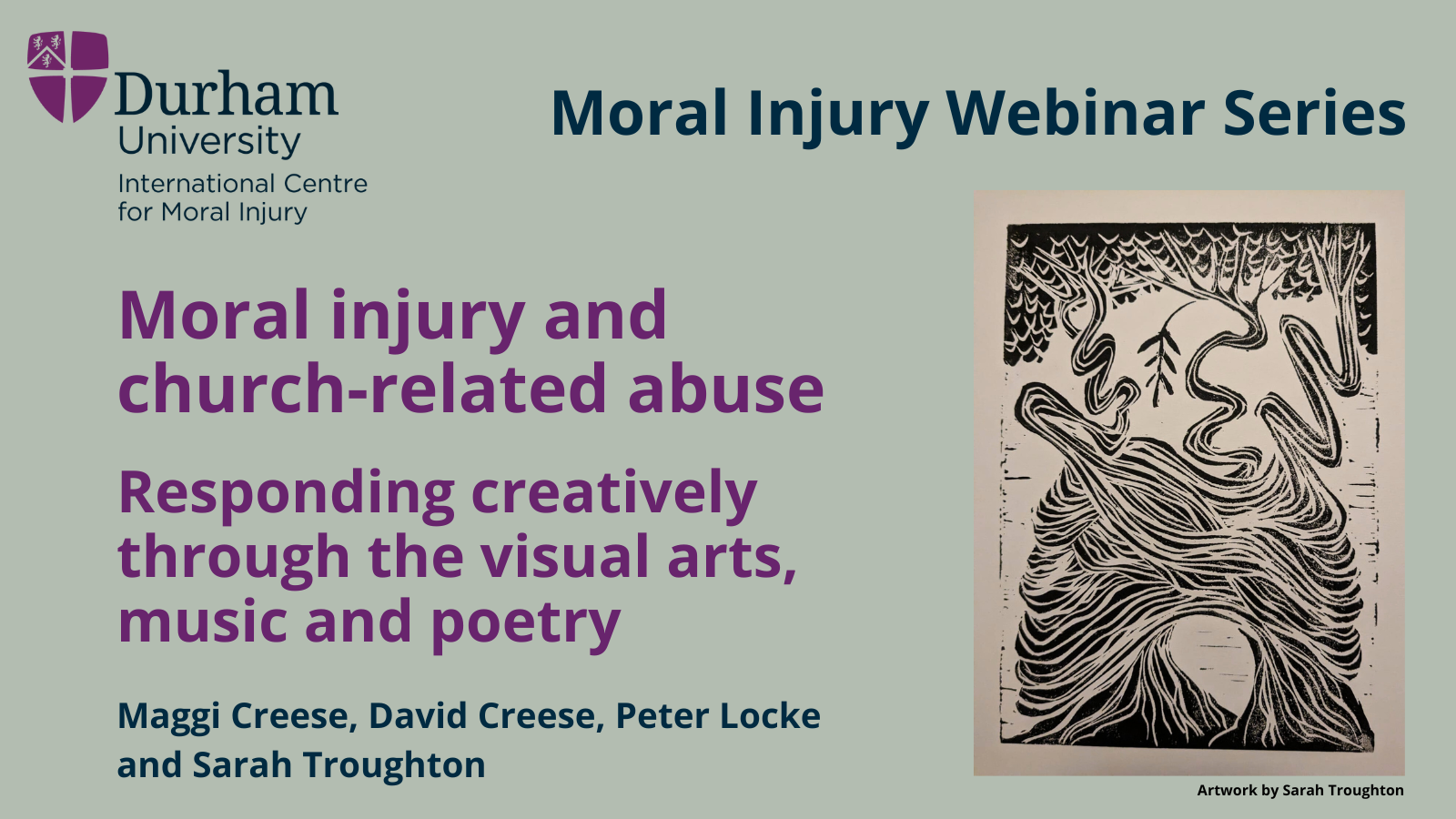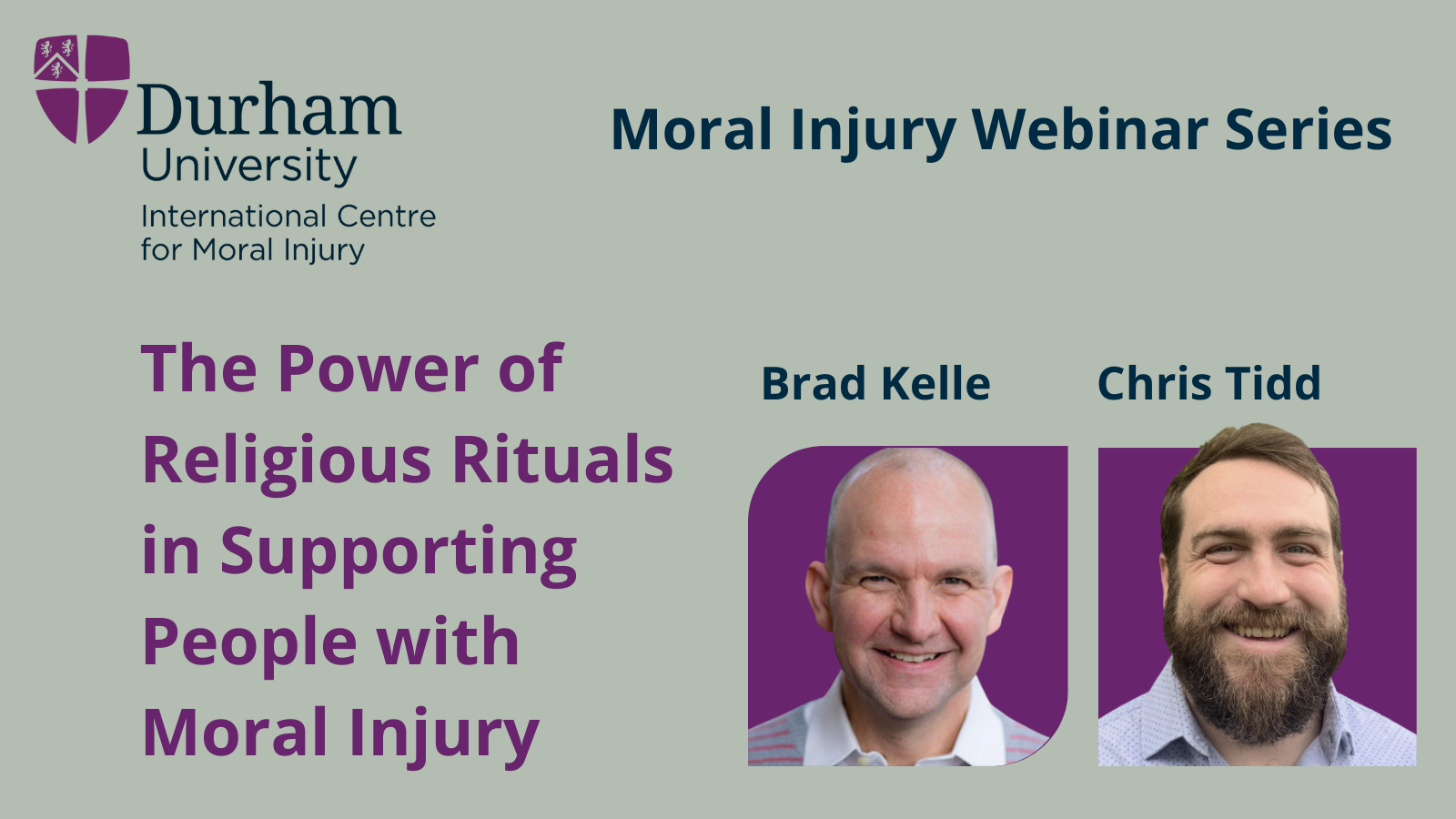Military Moral Injury: Religious and Theological Resources
Videos
Books
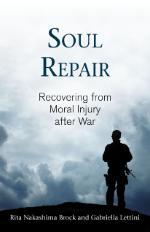 Rita Nakashima Brock and Gabriella Lettini, Soul Repair: Recovering from Moral Injury after War
Rita Nakashima Brock and Gabriella Lettini, Soul Repair: Recovering from Moral Injury after War
An accounting of the importance of understanding Moral Injury not as a medical “problem” but as a wound of the soul – something that has to be addressed in a more complicated understanding of what it means to be human, both as individuals and collective society. This work pioneered religious research into Moral Injury and was the argument that opened the investigation of Moral Injury by theologians and religious scholars.
Joseph McDonald, Ed., Exploring Moral Injury in Sacred Texts
A collection of essays that engage religious scriptures from Christianity, Judaism, Islam, Buddhism and US Civil Religion through the lens of Moral Injury in order to examine how these texts contribute to the moral identity of those who are guided by them and to identify sources of moral recovery within their pages. This is one of the few collections that engages non-Christian religious traditions in the exploration of religious resonances and Moral Injury.
Larry Kent Graham, Moral Injury: Restoring Wounded Souls
A thoughtful guide that connects core principles of pastoral and spiritual care with the particular needs of those who have experienced Moral Injury through the exploration of religious resources, rituals and practices. A landmark text that is concerned with framing and directly addressing moral trauma in pastoral counselling.
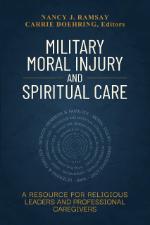 Nancy Ramsay and Carrie Doehring, Eds., Military Moral Injury and Spiritual Care
Nancy Ramsay and Carrie Doehring, Eds., Military Moral Injury and Spiritual Care
A collection of essays illuminating spiritual resonances with Moral Injury, with particular attention to practices and rituals that may aid in helping individuals and communities recover from Moral Injury through focus on their own experiences of injury, moral emotions and rituals that may connect to hope. This volume includes an examination of Christian, Jewish and Islamic perspectives and practices.
Dayne Nix, Moral Injury and a First World War Chaplain: The Life of G. A. Studdart Kennedy
An examination of the ways in which the morally injurious experiences of a British Army chaplain in the first world war deeply affected his life and impacted on the way he understood his own faith. Nix explores the ways in which Kennedy drew upon his faith after the war to express himself in poetry, critique ineffectual practices of the post-war Anglican church and re-orient his life.
Brad Kelle, The Bible and Moral Injury: Reading Scripture Alongside War’s Unseen Wounds
An exploration of Moral Injury within the Christian canon through the narratives of biblical figures such as Saul and Judas, as well as an accounting of the power of ritual in the ancient Israelite tradition in forming moral identity and mediating the experience of war after conflict. It concludes with a candid discussion of the question – does reading biblical warfare texts morally injure the reader?
Brian Powers, Full Darkness: Original Sin, Moral Injury and Wartime Violence
A theological examination of the power of an Augustinian concept of original sin - with attention to its emphasis on external forces that condition human willing – to illuminate the conditions in wartime that precipitate moral injury.
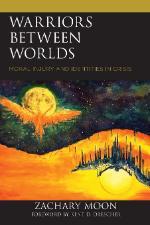 Zachary Moon, Warriors Between Worlds: Moral Injury and Identities in Crisis
Zachary Moon, Warriors Between Worlds: Moral Injury and Identities in Crisis
Written from the perspective of a US military chaplain and practical theologian, this work articulates the concept of ‘moral orienting systems’ in order to describe the ways in which we experience moral stress, incorporate new belief systems and experience moral emotions – all while noting that Moral Injury is not a measure of a defective moral compass, but one that is functioning properly in response to extreme stress.
Joseph Wiinikka-Lydon, Moral Injury and the Promise of Virtue
An argument that the language of virtue ethics – particularly through the work of Iris Murdoch – provides a valuable vocabulary with which to address Moral Injury, particularly locating our capacities to understand ourselves as capable of goodness as a critical aspect of both experiencing and recovering from Moral Injury.
Michael Yandell, War and Negative Relation: A Theoethical Reflection on Moral Injury
A theological argument from a US Army veteran of the Iraq war and systematic theologian that Moral Injury is a ‘negative revelation’ – the disclosure of the value of goodness, justice and meaning through their absence, and that the value of life can be paradoxically glimpsed through the dehumanisation of wartime violence.
Scholarly Articles
Alan Fontana and Robert Rosenheck, “The role of loss of meaning in the pursuit of treatment for posttraumatic stress disorder” Journal of Traumatic Stress 18(2) (2005) pp. 133-136
A study of US veterans of the war in Vietnam that found that those who experienced significant loss of meaning and sought help from the VA were more likely to seek help from clergy as well. The authors argue that pastoral counsellors should be incorporated into care teams in order to help people work through existential issues.
Joseph Currier et al., “Military veterans’ preferences for incorporating spirituality in psychotherapy or counseling” Professional Psychology: Research and Practice 49(1) (2018) pp. 39-47
A study that found that US veterans generally preferred the integration of religion and spirituality into their care. However, the study also finds that the issue is complex, suggesting that a veteran's background with religious traditions and baseline worldview matters in their preference for engagement with spiritual care.
Joseph Currier et al., “Moral injury and spiritual struggles in military veterans: A latent profile analysis” Journal of Traumatic Stress 32(3) (2019) pp. 393-404
A study that suggests that Moral Injury may be classified along ‘psychological’ and ‘spiritual’ categories, with the former essentially devoid of significant existential issues or lack of meaning, and the latter including those issues. The authors argue that this delineation is vital in addressing appropriate care to veterans.


/prod01/prodbucket01/media/durham-university/research-/research-centres/international-centre-for-moral-injury/Moral-injury-banner-1920X290.jpg)
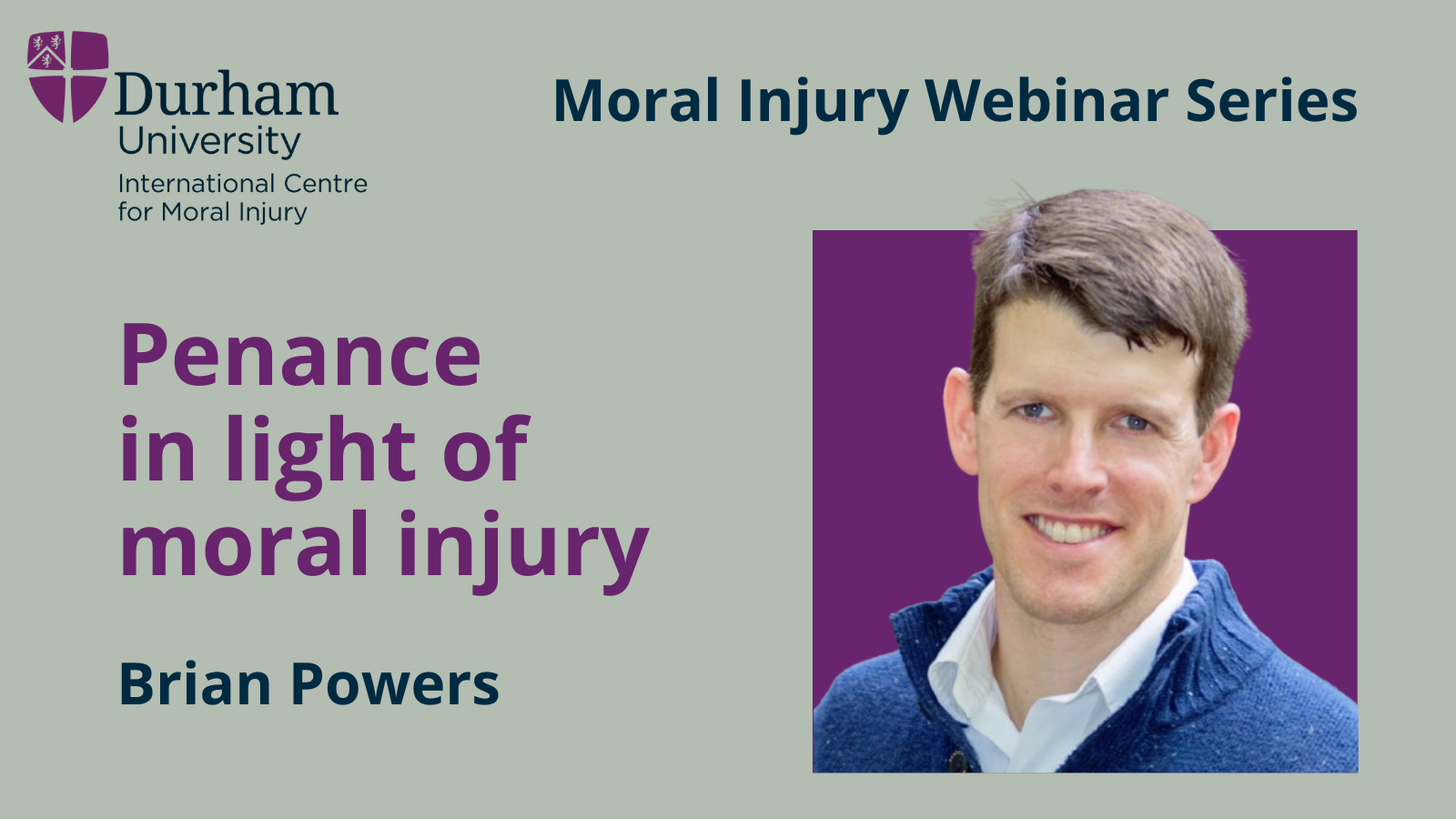
.png)
